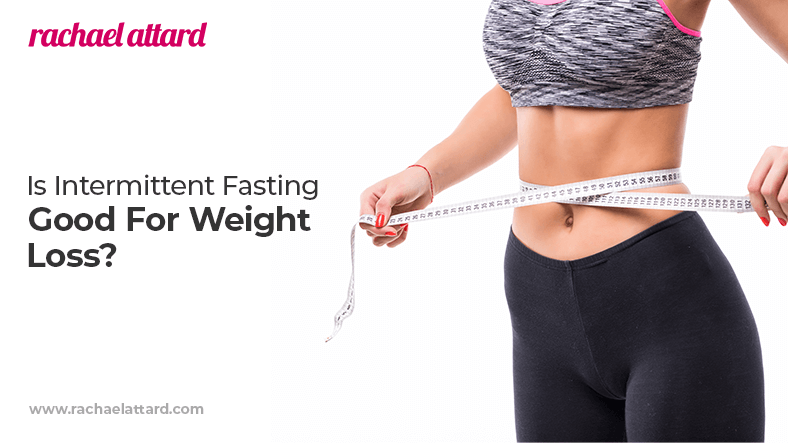
You have probably heard of the gluten-free diet. But what does it actually mean? Is it better than a low-carb traditional diet? It could also mean reducing sugar, carbohydrates, and fibre. Are there other factors you should consider? If you're curious, read on! These are the top misconceptions surrounding the Gluten-Free Diet.
Low-carb
While it may be tempting to lose weight by cutting out grains and carbohydrates from your diet, these plans can be risky. Your health can be affected if you avoid gluten and other processed carbohydrates for a long time. These foods are highly addictive and can cause addiction. Celiac disease patients are not advised to follow this diet. You should consume two to three portions of whole grains per day in order to safely lose weight.
High-fat
You may be looking for a gluten free diet to help you lose weight. There are many reasons to try a gluten-free diet for weight loss. Before making the switch, you should consult a doctor and a nutritionist. It's also necessary to plan your weekly meals, and figure out how many calories you'll consume on a gluten-free diet.

High-sugar
The food industry has created reduced-fat and nonfat products that contain sugar in large amounts. This is particularly dangerous since many of these products are mainly made from sugar. A recent study found that most men eat a high-sugar diet. In fact, a single slice of whitebread can have four tablespoons of added sugar. Even if someone isn't diabetic it's possible to get overweight on a high sugar diet.
Low-fiber
If you're looking for foods that will be low in fiber, the general rule is to choose foods that contain between 2 and 3g of fiber per dish. As long as there are no seeds or skins, fruits and vegetables can be eaten. Low-fiber foods made from cooked food are also common. This is because their fiber is broken down during cooking. If you're undergoing weight loss surgery, you can follow a low-fiber diet for weight loss.
Low-iron
Low-iron and gluten free diets share some common nutritional benefits. However, they also have their own drawbacks. These foods are often low in iron and therefore unsuitable for those who have already been diagnosed with iron deficiencies. Iron can be lost via sweat and perspiration, but there are still some foods that provide sufficient iron. Here are a few.
Celiac disease
Celiac disease patients may find a gluten-free diet the best option to help them reach their weight loss goals. The diet you choose is safe and your health will not affect the calories or protein you eat. The BMI of a gluten-free lifestyle does not change, but it could increase your chance of developing metabolic disorder, which is a group characterized by a higher risk of cardiovascular disease, stroke, and type 2 diabetes. However, further research is needed to understand the exact relationship between gluten-free diets and metabolic syndrome. As with all matters, it is important to discuss your diet plan and concerns with your healthcare provider.

SAD diet
SAD diets can cause serious health problems. This can have many negative effects on your mental and physical health. In addition to increasing the risk of developing diabetes and heart disease, a SAD diet can also alter your gut microbiome and affect your energy levels. You will likely feel more tired and drowsy, which can make it difficult to focus. There are many ways you can make healthy food choices and not feel guilty about it.
FAQ
Is it possible to eat fruits while intermittent fasting?
Fruits are great for you. They provide vitamins, minerals, fiber, antioxidants, and other nutrients. But, they can also contain sugar that can spike blood glucose levels. This can lead to insulin resistance and weight gain. If you're looking to lose weight with an IF diet then you should choose fruits that are low in glycemic.
How does intermittent fasting impact my sleep?
Intermittent fasting can affect your sleep. You may notice an increase in hunger hormones if you skip meals. You might find yourself awakened at night due to your hunger hormones.
Experts recommend skipping breakfast. Instead, they suggest having a light snack before bedtime.
You can still eat a small meal if you feel hungry after the snack.
Don't overeat. You'll gain weight, not lose it.
What level of exercise is required to lose weight?
There are many factors that influence the amount of exercise required to lose weight. These include your gender, age, body type and how heavy you are. However, generally speaking, most people need at least 30 minutes of moderate physical activity five days per week.
The American College of Sports Medicine recommends 150 minute of moderate-intensity aerobic activities per week. These should be done over three days.
To lose 10 lbs, you should aim to exercise 300 minutes each week. This includes activities such swimming laps (brisk walking), biking, dancing and playing tennis.
For those just starting out, you might consider 20 minutes of vigorous activity every other week. You could do sprints, lifting weights or jumping rope.
Aerobic exercise also helps burn calories and build muscle mass. Muscle burns more calories than fat does. So building muscle while losing weight may help you achieve your goal faster.
Is there any difference between intermittent fasting and calorie restriction?
Calorie restriction refers to eating less than what your body requires. Intermittent fasting differs from other types of intermittent fasting in that it does not restrict calories. Intermittent fasting focuses more on eating fewer calories every day.
Intermittent fasting works better because it allows for you to enjoy your favorite foods without feeling guilty.
However, both methods have their pros and cons. You have to decide which method you prefer.
What can I eat while on intermittent fasting in order to lose weight?
Cut out carbs to lose weight. This means that you should cut out carbohydrate-based foods like bread, pasta and rice.
Also, you should avoid eating too many protein as it can make you feel fuller for longer. This will ensure that you don't feel hungry as frequently.
Focus instead on healthy fats such as avocado, olive oil, nuts, seeds, and peanut butter. These foods keep you satisfied even after hours of eating.
It's vital that you get enough water. Water can help you lose fat by keeping you hydrated.
Sometimes you may feel compelled to eat these foods even if you're not fasting. You don't have to cave to your cravings. You could gain more weight than what you lose if you do.
Keep an eye on the amount of food you eat throughout the day to avoid overeating. When hunger strikes, drink a glass of water instead of reaching for another snack.
It may sound counterintuitive but this has been shown to help you lose weight. One study published in Obesity showed that plain water was more nutritious than sugary drinks.
Additionally, plain water can help reduce hunger pangs. You can lose weight by avoiding sweetened drinks and sticking to water.
To lose weight, you don’t have to count calories or restrict certain foods. Instead, you should make small lifestyle changes.
Try swapping out your usual breakfast sandwich in favor of a bowl o' oatmeal. Try swapping your afternoon cookie to a piece or fruit.
These simple changes will help you shed weight quickly and without spending a lot of time in the kitchen.
How often do people fast regularly?
Most people who follow a ketogenic diet fast once per week. Some people fast twice a week. And others fast three times per week.
Every fast is different. Some people fast for 24 hours, whereas others fast for 48 hours.
Some people may even stay awake for 72 hours. However, extreme cases like these are rare.
Statistics
- According to a study sponsored by the American Council on Exercise, a person weighing around 140 pounds (64 kg) would burn 108 calories at a 30-minute beginner's Pilates class or 168 calories at an advanced class of the same duration (26). (healthline.com)
- One 6-month study showed that simply doing 11 minutes of strength-based exercises 3 times per week resulted in a 7.4% increase in metabolic rate, on average. (healthline.com)
- It's estimated that half of all American adults attempt to lose weight every year (1Trusted (healthline.com)
- One study in 9 active men found that HIIT burned 25–30% more calories per minute than other types of exercises, including weight training, cycling, and running on a treadmill (18Trusted Source (healthline.com)
External Links
How To
How to lose weight quickly
There are many quick ways to lose weight. Many people find them ineffective, and even unsustainable. It is best to exercise and lose weight quickly through diet. Your daily calories should be less than your daily intake. This means eating fewer calories than what your body burns during normal activities. If you want to lose weight fast, you must reduce your calorie intake.
You should avoid foods that contain large amounts of fat and sugar since they increase your appetite. Make sure to drink lots of water every single day. It keeps you hydrated, and your metabolism at its best. Combine these three things and you will see results faster than ever before!